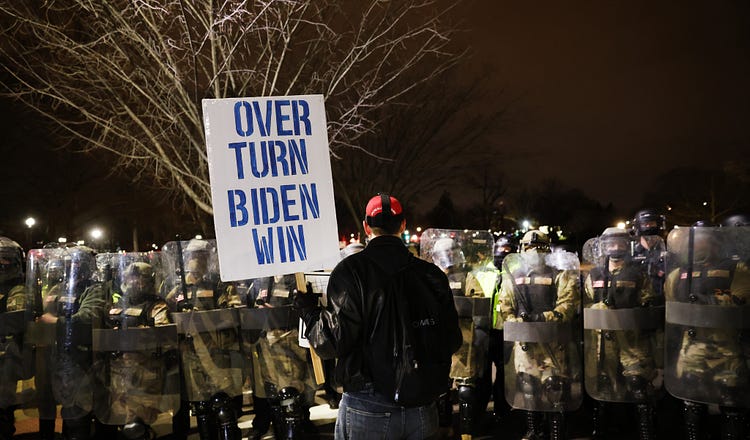Honestly: Election Denial: A Roundtable

National Guard and the Washington D.C. police keep demonstrators away from the Capital on January 06, 2021 (Spencer Platt via Getty Images)
74
Denying the outcome of elections has become alarmingly popular these days.
In one corner, Democrats are claiming that gerrymandering has made our elections illegitimate, that the Senate is anti-Democratic and so is the Supreme Court. The White House Press Secretary has claimed that Trump stole the 2016 election from Hillary Clinton.
In the other corner, a…
Continue Reading The Free Press
To support our journalism, and unlock all of our investigative stories and provocative commentary about the world as it actually is, subscribe below.
$8.33/month
Billed as $100 yearly
$10/month
Billed as $10 monthly
Already have an account?
Sign In

